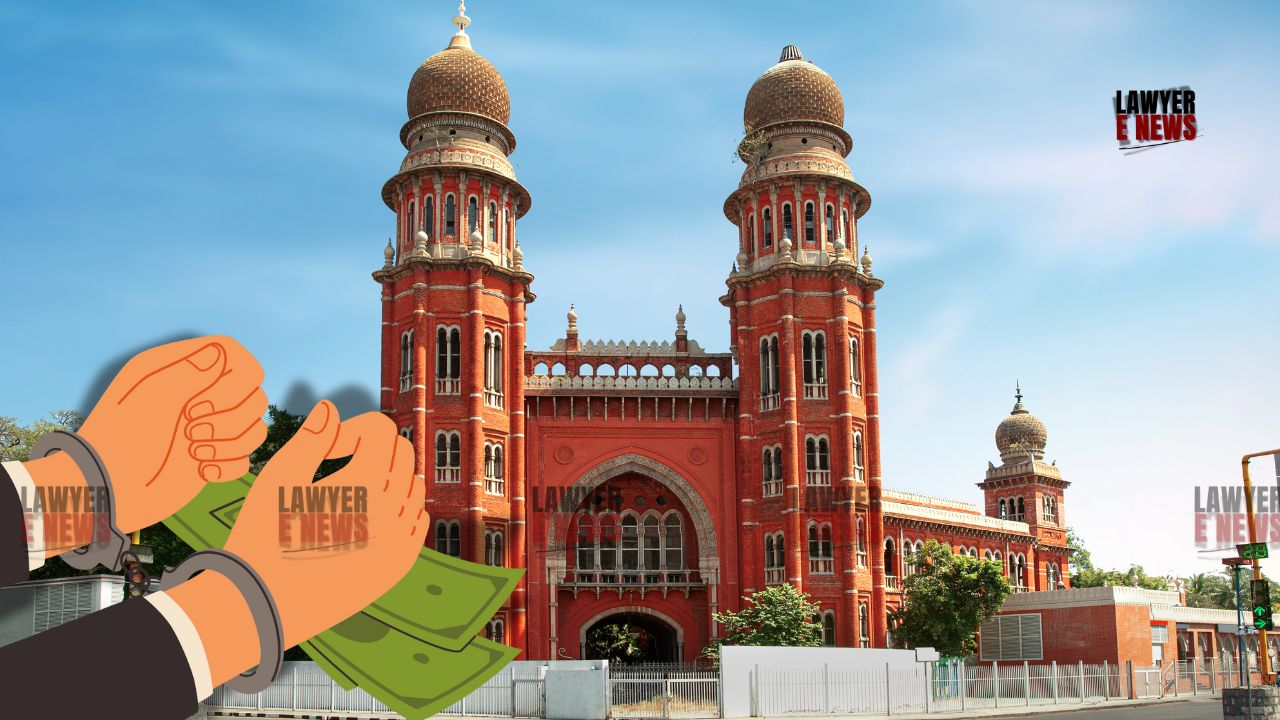-
by Admin
15 February 2026 5:35 AM



The Madras High Court highlighted improper modification of investigation periods, leading to the dismissal of charges under the Prevention of Corruption Act. In a recent judgment, the Madras High Court set aside the charges against D. Dwarakanadha Reddy, an appraiser in the Customs Department, and his co-accused in a high-profile disproportionate assets case. Justice Vivek Kumar Singh’s ruling emphasized the significance of consistent investigative periods and the importance of procedural integrity, ultimately discharging the accused from all charges.
The petitioners, D. Dwarakanadha Reddy, his wife D. Sujana, and his brother Hemendhra Reddy, were accused of acquiring disproportionate assets worth ₹57,22,601 during the check period from April 1, 2001, to March 31, 2005. Initially, a closure report filed by the CBI indicated no disproportionate assets (DA) for the period from January 1, 1998, to July 11, 2006. However, the case was reopened based on new information, leading to revised charges.
The court found that the modification of the investigation check period was improper. Initially, the check period was set from January 1, 1998, to July 11, 2006, which reflected no disproportionate assets. The revised check period excluded crucial time from July 1, 2005, to July 11, 2006, during which the third petitioner earned ₹60,00,000. This exclusion was deemed significant as it affected the overall assessment of the alleged disproportionate assets.
Justice Vivek Kumar Singh highlighted the principle that further investigation must supplement and not contradict the initial investigation. The court cited the Supreme Court’s rulings in Vinay Tyagi v. Irshad Ali and Luckose Zachariah v. Joseph Joseph, emphasizing that both primary and supplementary reports should be read conjointly. The exclusion of a significant period and its associated income was seen as a deliberate act that led to incorrect framing of charges.
“The deliberate exclusion of the period from July 1, 2005, to July 11, 2006, during which a substantial income was earned by the petitioners, is a procedural irregularity that vitiates the prosecution’s case,” remarked Justice Singh. “This period is critical in evaluating the entirety of the accused’s assets and liabilities.”
The High Court’s decision to set aside the charges underscores the necessity for thorough and procedurally sound investigations in corruption cases. By emphasizing the importance of consistent investigative periods and procedural integrity, the judgment reinforces the judicial commitment to fair trials. This ruling is expected to impact future cases, ensuring that procedural lapses do not undermine the integrity of legal proceedings.
Date of Decision: July 29, 2024
D. Dwarakanadha Reddy & Others v. The State, represented by the Additional Superintendent of Police, CBI, ACB, Chennai
